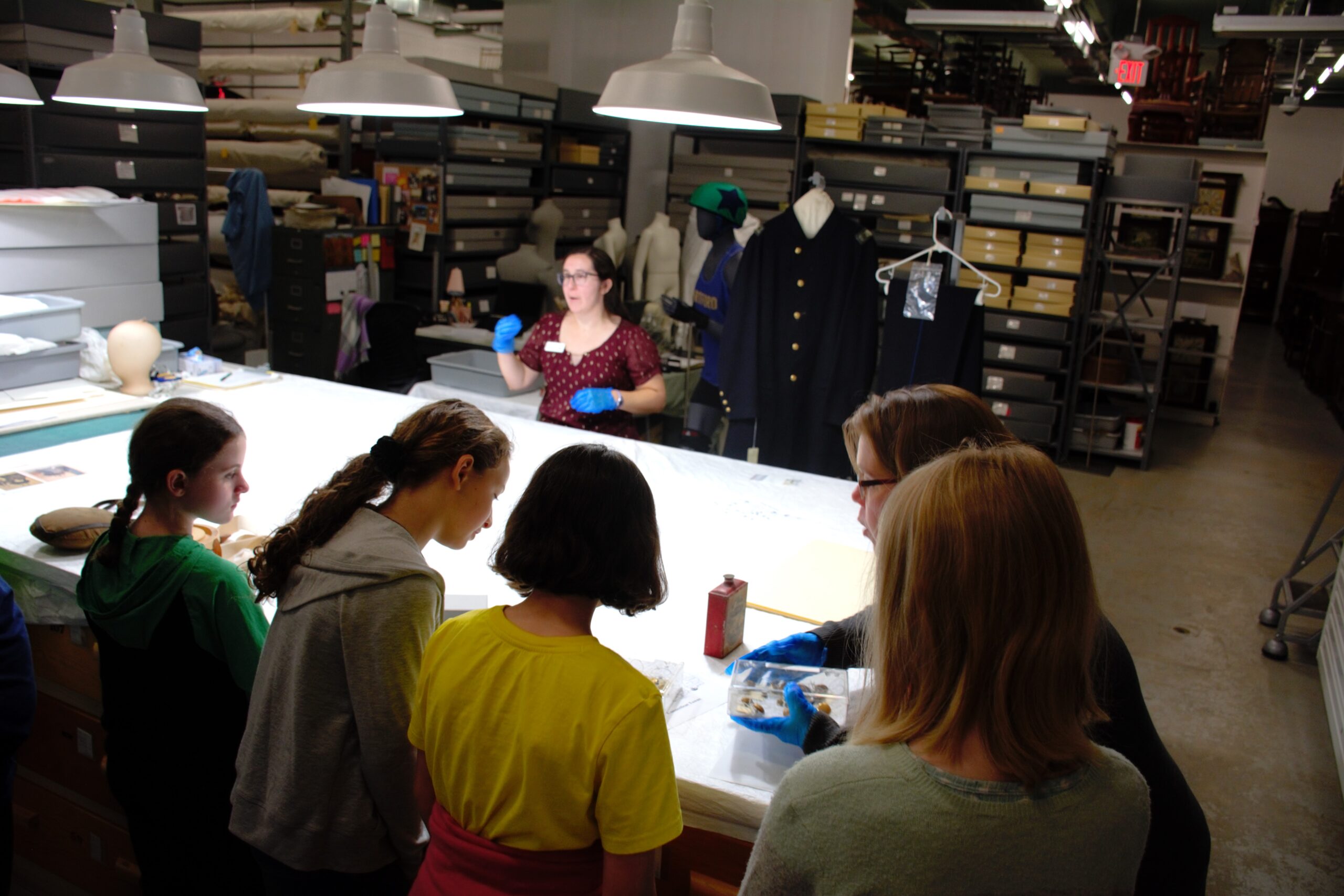Educational programs designed for homeschool families
Our next Homeschool Day will take place on Monday, September 15, 2025.
Visit the Museum for a day of interactive programing all about Connecticut history! Workshops are offered throughout the day for a variety of ages centered around two primary themes: 1) Connecticut nicknames and symbols and 2) museum jobs and the work that happens behind the scenes. Each workshop includes a list of additional resources to encourage further at-home exploration of the workshop themes.
A lunch break will take place from 11:45 am-12:30 pm. Bring a bagged lunch and enjoy meeting other homeschool families! Please note, parents or guardians are expected to remain on Connecticut Museum premises for the duration of Homeschool Day. The auditorium lobby will be available for adults to use throughout the day.
Families can also register their children under the age of 5 for Little Learners. Available throughout the day, this loosely structured program features story times, crafts, and guided activities related to the day’s themes. Children enrolled in Little Learners must be accompanied by a parent or guardian at all times.
If you have any questions, please contact Katerina Mazzacane, Youth and Family Programs Manager, at 860-236-5621 x222 or email [email protected].
_____________________________________________
Pricing
- Little Learners (ages 0-1): Free of charge
- Little Learners (ages 2-4): $5 per child
- Workshops (members): $20 per child for full day
- Workshops (non-members): $25 per child for full day
- Family maximum: $100
Pre-Registration Required
- Click here to register.
- Enrollment is limited and families must pre-register. Full, non-refundable payment via credit card must be made at the time of registration to reserve your child’s place.
_____________________________________
Little Learners: Ages 0-4
Museum Adventure
10:30 – 11:45
Let’s go on an adventure! Through a reading of the Museum’s new children’s book, The Key to Adventure, students will discover the magic of museums. Then, inspired by objects in the Museum’s collection, they will embark on their own fun-filled, imaginary journeys through time.
Timeless Toys
12:30 – 1:45
Have you ever played with Legos? What about Silly Putty? Through special story times, activities, and crafts, students will learn about some of the classic toys made in Connecticut! They will even get to decorate a Frisbee and make their own Silly Putty to bring home.
_____________________________________________
Activities and Workshops: Ages 5-7
What Makes a Museum?
10:30 – 11:45
What makes a museum so special? Take a deep dive into the many aspects of a museum, like exhibits and collections, and take on the role of a museum professional. Through scavenger hunts and crafts, students will learn about the many things that make museums fun!
Made in Connecticut
12:30 – 1:45
Connecticut made that?! From Frisbees to Legos and many toys in between, Connecticut has invented and manufactured games that kids still enjoy today. Students will learn more about these fun-filled pieces of history by looking at historic toys from the Museum’s collection, decorating a Frisbee, and playing with some of these Connecticut classics!
_____________________________________________
Activities and Workshops: Ages 8-10
Museums Behind the Scenes
10:30 – 11:45
What does it take to develop an exhibit? What about designing a tour or preserving artifacts? Students will learn about all these jobs and more as they create a museum tour, visit collections storage, and explore the ins and outs of exhibit design!
What’s in a Name?
12:30 – 1:45
Why is Connecticut called the Nutmeg State? What is a Charter Oak tree and how did it inspire a nickname? In this workshop, students will grate nutmegs, reenact part of the legend of the Charter Oak Tree, and look closely at items from the Museum’s collection to discover the stories behind some of our state’s most famous nicknames.
_____________________________________________
Activities and Workshops: Ages 11-13
Museum Jobs: Curate, Design, and Educate
10:30 – 11:45
Dive into the behind-the-scenes world of museums! Students will try out a variety of museum jobs and learn how museums have changed throughout history. They will get the chance to visit collections storage, create an exhibit floorplan, and design an educational activity.
Connecticut Nicknames: Fact or Fiction?
12:30 – 1:45
Be a history detective! Do you think the Legend of the Charter Oak is truly plausible? What is the true story of why we are called the Nutmeg State? Through hands-on activities and primary sources, students will piece together clues to try to determine which nicknames are fact and which are fiction.
_____________________________________________
